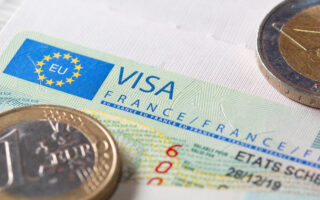How to complete your income tax return
Everyone in France must submit an income tax return. David Crawford explains how the system works
There are two aspects of French tax law that are reflected in the immediate needs of the taxpayer and which are can be explained by answering the following questions.
WHAT MUST I DO, AND WHEN?
Each foyer fiscal, which refers to all the people included on a household’s income tax declaration, has to complete an income tax return at least once a year, whether in physical or electronic form. You should receive your tax return annually between the end of April and mid-May. You have until midnight on 31 May by which to collect the necessary information and return the form by registered post, but the end of June to submit an online declaration. This has the further advantage that you can alter it online if needs be at any time before the deadline for its submission. Do check your local deadlines, though, as these can vary from department to department.
The declaration is made on form no. 2042, or 2042 DPR in the case of a partially pre-completed one. The latter covers more than 90% of foyers fiscaux and in it will be stated various types of information obtained by the tax office from various third parties: salaries, pensions, unemployment benefits, sickness benefit, returns on capital investments etc.
They will also insert the upper limit of pension savings and charges sociales g�n�rales paid the previous year, which will be allowed for IR purposes against your gross income before arriving at your net taxable income for the tax year.
If you are one of the fewer than 10% remaining, you will either receive a form no. 2042 with some very basic details filled in such as your name and civil status, leaving you to fill in the remainder, or nothing at all if you are unknown to the tax office. In the case of the latter, you should request one, complete it and send it in. If they discover you have not done this when you should have done, the penalties are eye-watering.
When you receive your pre-completed 2042 form, you should check carefully that the tax office have your details and figures correct, and that they have given you all the allowances to which you are entitled. They have been known to make mistakes. If you spot an error, you cross out their figure and insert the correct one in the box by the side.
The form will only give the income etc of yourself and your spouse or civil partner. It will not have details of any other income received by other members of your foyer fiscal such as invalid dependent relatives living with you, children and so on, which you must declare.
If you make a mistake, do tell them immediately rather than let them find out as they will never believe it was other than intentional. You should also put in matters which can be deducted from your gross income such as maintenance payments, cost of paying for an elderly relative living with you, pension contributions etc, or which give rise to a tax reduction or to a tax credit (such as equipment for the house, interest on a loan to purchase the dwelling, cost of a childminder etc).
WHAT ARE THE SANCTIONS IF I AM LATE OR DO NOTHING?
This is serious business. In 2010, the authorities recovered some €16,000,000 in taxes and penalties, of which €3,000,000 came from private foyers fiscaux.
The good news is that salaries, pensions, family allowances and returns on savings are very easily inspected by virtue of information supplied to the tax authorities by third parties. So expats who are often living off such payments alone have little to fear in this respect. In the case of a simple oversight by a taxpayer whose affairs have been in order in previous years, the matter might be rectified by a simple payment of the additional tax due without any interest or penalty. Other taxable events and payments such as rental income, wealth tax, inheritance tax, capital gains tax and the like are less easy to inspect, and being under declaration are less sympathetically treated when discovered.
Significant variations in circumstances, income and capital, from one year to the next, capital gains which do not correspond to income declared previously, especially on the sale of a business, all attract attention. Large estates are also looked into as well as large items which are said to be business assets so as to escape tax. The tax authorities target those returns which might bring in large amounts of tax if an under-declaration is detected. They also check that maintenance is really being paid and that children said to be at home are really still living there.
Another source of information is the denunciation by friends, neighbours, present or former spouses, cohabitees and mistresses, although anonymous ones are said to be consigned to the bin! My friend in Le Touquet said he was recently told that his house was his second home as he was never there at the weekend. He would go and visit his wife in Lille as she has a business there and he teaches in Etaples. How did they know this? They obtained copies of his telephone bills and saw that no calls were made at the weekends!
The investigation carried out by the tax authorities is a long, in-depth procedure which can take up to a year and concerned 3,880 foyers in 2010. This involves a line-by-line examination of all credits and debits in the books and accounts of the individual and even the bank accounts of any children.
Searches at the home are very rare and can only be carried out under the supervision of a judge. They are only undertaken when there is a strong suspicion of fraud, often by the directors of a company when tax officials have been going through the books.
ACROSS THE SEAS
Finally, the tax office now has considerable powers to ask for details of transactions carried out abroad. It can even ask foreign banks to provide it with information of account holders’ transactions if they may be liable to pay tax in France.
So what are the penalties?
• Interest on late payment: 0.4% per month
• Penalty for late payment: 10% of tax due
• Or an increase in the tax due of 40% for negligent concealment
• Or an increase in the tax due of 80% for fraud, deliberate concealment or obfuscation.
The taxpayer can appeal to the courts. In the case of fraud, the matter can be reported to the criminal courts where the maximum sentence is seven years in prison and €1,000,000 fine.
David Crawford is director of Opalegal Limited
www.buyingfrenchproperty.com
Share to: Facebook Twitter LinkedIn Email


